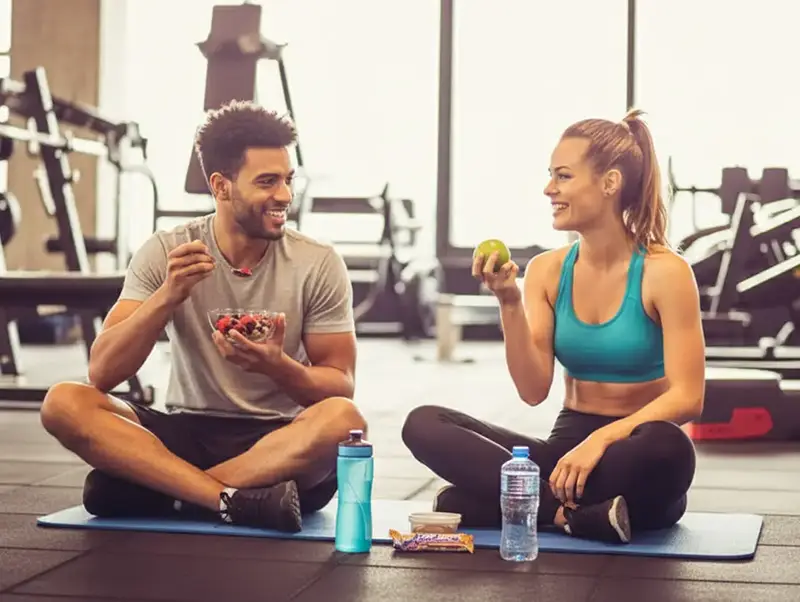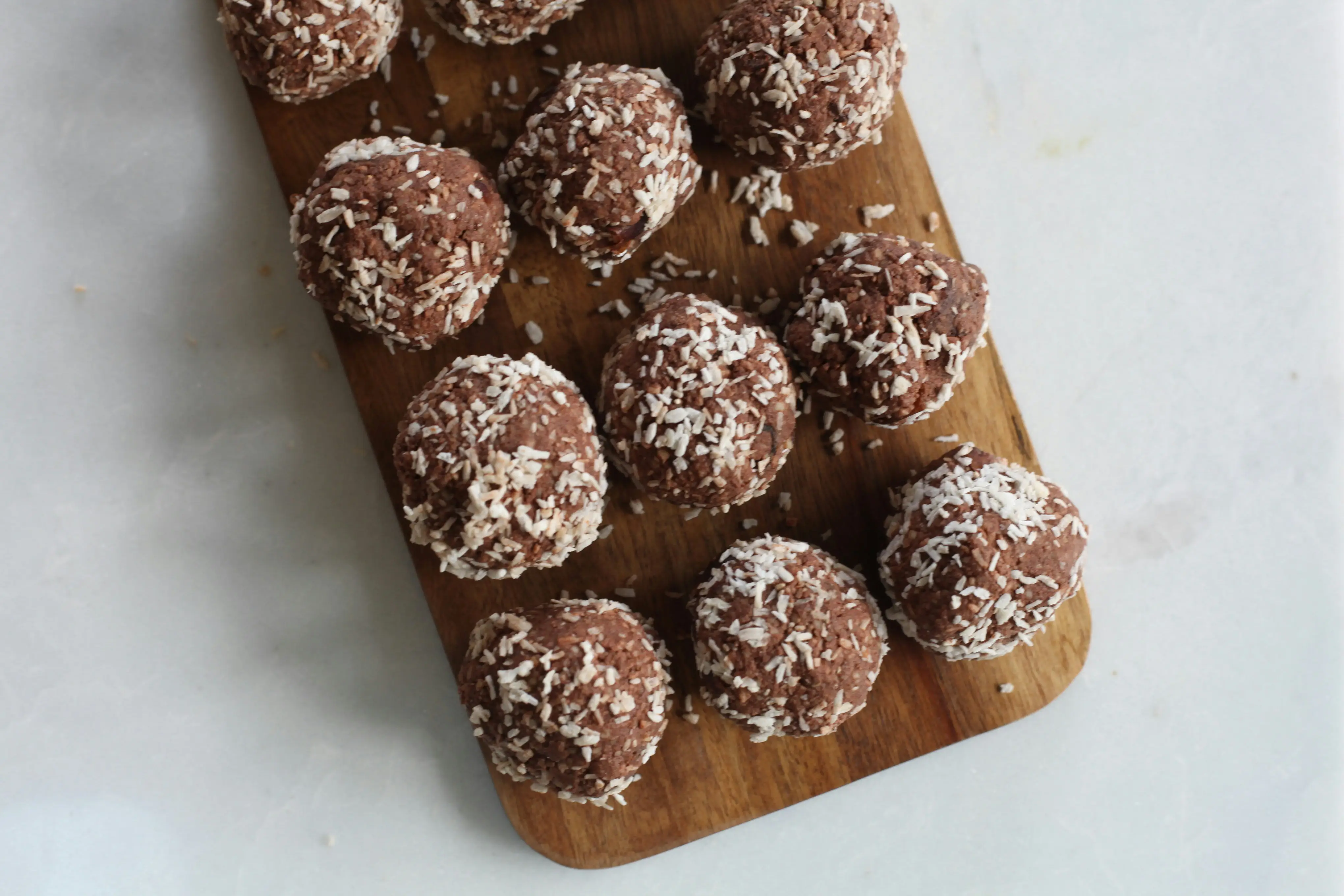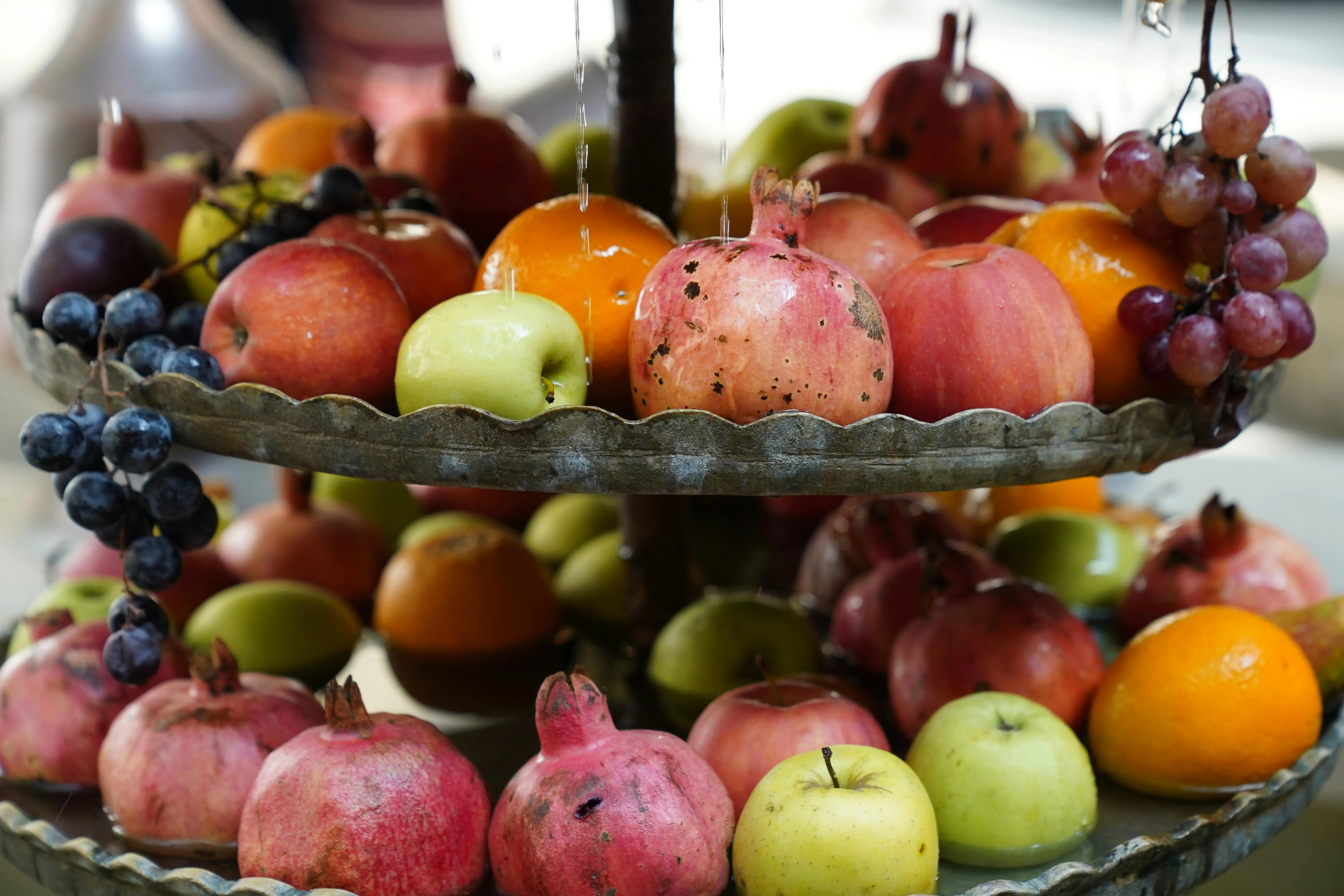
Pre and Post-Workout Nutrition Guide for NYC Gym-Goers
…simple tips to fuel your workouts and speed up recovery.

…simple tips to fuel your workouts and speed up recovery.
If you’re serious about results fat loss, strength, performance, or simply feeling better your nutrition around training matters as much as the workout itself. As one of NYC’s top gyms with locations in Union Square, 19th Street, Midtown, and the Financial District (FiDi), we hear this question daily: what should I eat before and after I train? Use this guide to fuel smarter in a fast-paced city without overthinking it.
Fueling before training helps you push harder, stay focused, and avoid mid-workout dips. Refueling after training helps your body repair muscle, replenish energy stores, and reduce soreness. Done well, this combo supports muscle gain, fat loss, steady energy, and fewer injuries.
Aim to eat 1–2 hours before training. If you train first thing and can’t manage a full meal, have a light snack 30–45 minutes before.
Carbohydrates for fuel
Protein to support muscle repair
Minimal fat and fiber to keep digestion light
Grilled chicken, brown rice, and roasted vegetables
Scrambled eggs, whole-grain toast, and berries
Quinoa bowl with avocado, beans, and mixed greens
Oats cooked with milk, stirred with protein powder, topped with banana
Turkey sandwich on whole-grain bread with greens and mustard

Banana plus a tablespoon of almond or peanut butter
Protein shake and an apple
Greek yogurt with berries and honey
Rice cakes with cottage cheese or turkey slices
A low-sugar protein bar
Heavy, high-fat meals
Very high-fiber meals that can cause GI distress
Greasy takeout
Going completely fasted unless that’s an intentional protocol for you
Union Square (14th St): Our onsite Juice Bar has pre- and post-workout options: build-your-own protein smoothies (whey or plant), add-ins like creatine, collagen, and greens, light pre-workout combos (espresso + banana, protein shot), and recovery blends with 30–40 g protein, fruit, and oats.19th Street: Our onsite Juice Bar offers the same build-your-own smoothies, cold-pressed juices, acai/recovery bowls, and quick bites ideal for pre-workout (banana + protein shot) or post-workout (protein + oats + berries).
Fat loss
Keep the pre-meal simple: lean protein plus easily digested carbs (for example, chicken and ¾ cup cooked rice). Avoid big fat servings right before training so your energy stays available.
Muscle gain
Eat a balanced plate 1–2 hours pre-workout with 25–40 g protein and 40–80 g carbs. If appetite is low, sip a small carb drink during training.
Performance or long sessions
If you’ll train 75–120 minutes, include 60–90 g total carbs spread pre- and intra-workout (banana plus a sports drink works).
Morning training
Not hungry at dawn? Try a half shake plus fruit or a latte and banana. Even 100–200 calories can make a difference.
Ideal timing
Eat within 30–60 minutes post-workout if possible. The goal is protein for repair and carbs to refill muscle glycogen.
Post-workout focus
Protein: 20–40 g for most people, up to roughly 0.3 g/kg body weight
Carbs: 0.5–1.0 g/kg based on session length and intensity
Fluids and electrolytes: replace sweat losses
Simple post-workout meals
Salmon, jasmine rice, and broccoli
Chicken burrito bowl with beans, corn, salsa, and greens
Shrimp stir-fry with vegetables and noodles
Tuna wrap with fruit on the side
Tofu, edamame, and rice with mixed veggies
Quick post-workout snacks
Whey isolate shake plus a banana
Greek yogurt parfait with granola
Chocolate milk and a rice crispy treat for fast carbs
Cottage cheese with pineapple
Hummus with pita and a small protein shake

Aim for pale-yellow urine. Drink 16–24 oz water in the two hours pre-workout, sip during training, and another 16–24 oz after. If you sweat heavily or train in summer, add sodium (a pinch of salt or an electrolyte tab). Potassium and magnesium from whole foods bananas, potatoes, leafy greens, nuts support recovery and cramp prevention.
Protein
Daily: 0.7–1.0 g per pound of goal body weight for most active adults
Per meal: 25–40 g, especially at breakfast and post-workout
Carbohydrates
Light or moderate training days: 1.5–2.5 g per pound of body weight across the day
Heavier training or performance blocks: 2.5–3.5+ g per pound (varies by sport and volume)
Fats
Fill the rest of your calories with healthy fats (olive oil, avocado, eggs, nuts). Keep fats lower pre-workout so digestion stays quick.
Pre-workout
Oats with soy milk and pea protein
Rice cakes with peanut butter and banana
Tofu scramble with toast and fruit
Post-workout
Tempeh or tofu stir-fry with rice and veggies
Lentil pasta with marinara and a side salad
Greek yogurt or skyr (if dairy-friendly) with fruit and granola
Plant-based protein shake plus a potato or rice bowl
Training fasted and fading halfway through: add 20–40 g carbs 30–45 minutes pre-workout
High-fat, high-fiber meal right before training: push that meal 2 hours earlier or choose simpler carbs closer to the session
Too little protein post-workout: add a 25–40 g protein shake or yogurt bowl
Dehydration headaches: drink 16–24 oz water in the two hours before and add electrolytes for hot days
Under-fueling for evening workouts: eat a real lunch and a light pre-session snack; don’t rely on coffee alone
Union Square early-AM lifter
6:30 am shake with one scoop whey and a banana
7:00–8:00 am lift at CompleteBody Union Square
8:15 am post-workout skyr and oatmeal from a nearby café
19th Street mid-morning trainer
9:30 am snack: Greek yogurt and berries
10:00–11:00 am session at CompleteBody 19th Street
11:30 am post-workout: tuna wrap and a piece of fruit
Midtown lunchtime trainer
11:30 am snack: rice cakes with turkey and fruit
12:00–12:45 pm training session at CompleteBody Midtown
1:15 pm post-workout bowl: brown rice, chicken, extra greens
FiDi after-work class
4:30 pm snack: Greek yogurt and a granola bar
6:00–7:00 pm class at CompleteBody FiDi
7:30 pm dinner: salmon, potatoes, asparagus
Fasted cardio can work for some people doing short, low-to-moderate sessions. For strength, intervals, or long workouts, most people perform better with at least a small carb plus protein snack. If you like fasted sessions, keep them under 45–60 minutes, stay moderate in intensity, and eat a proper balanced meal afterward.
Whey or plant protein: convenient way to hit your protein target
Creatine monohydrate: 3–5 g daily supports strength, lean mass, and recovery
Caffeine: 100–200 mg 30–45 minutes pre-workout can improve focus and effort
Electrolytes: helpful for heavy sweaters or summer training
Beta-alanine and citrulline: niche performance add-ons; helpful for some, not needed for all
If you’re pregnant, breastfeeding, or on medication, ask your clinician before adding supplements.
Prioritize protein at each meal, strength train 2–3 times weekly, and keep pre-workout snacks simple. If appetite is low, liquids (smoothies, shakes) can help you meet protein and carb goals without feeling too full. Recovery walks and mobility on off days support joint health and stress.
Eat a balanced meal 1–2 hours before training or a light snack 30–45 minutes before. Hydrate, train with purpose, and follow up with protein and carbs within an hour. Keep it simple on busy NYC days with grab-and-go options near CompleteBody Union Square, 19th Street, Midtown, and FiDi. Your nutrition should make training feel better, not more complicated.
Personal training at CompleteBody includes practical nutrition coaching that fits your schedule and preferences. We start with an InBody body-composition assessment, build a plan you can repeat in real life, and adjust as your goals evolve. Whether you’re training at CompleteBody Union Square, 19th Street, Midtown, or FiDi, our team will help you dial in fueling so your effort in the gym shows up in the mirror and in your performance.
Ready to train and fuel smarter?
Book a complimentary assessment at CompleteBody and let’s build your plan Start Now.